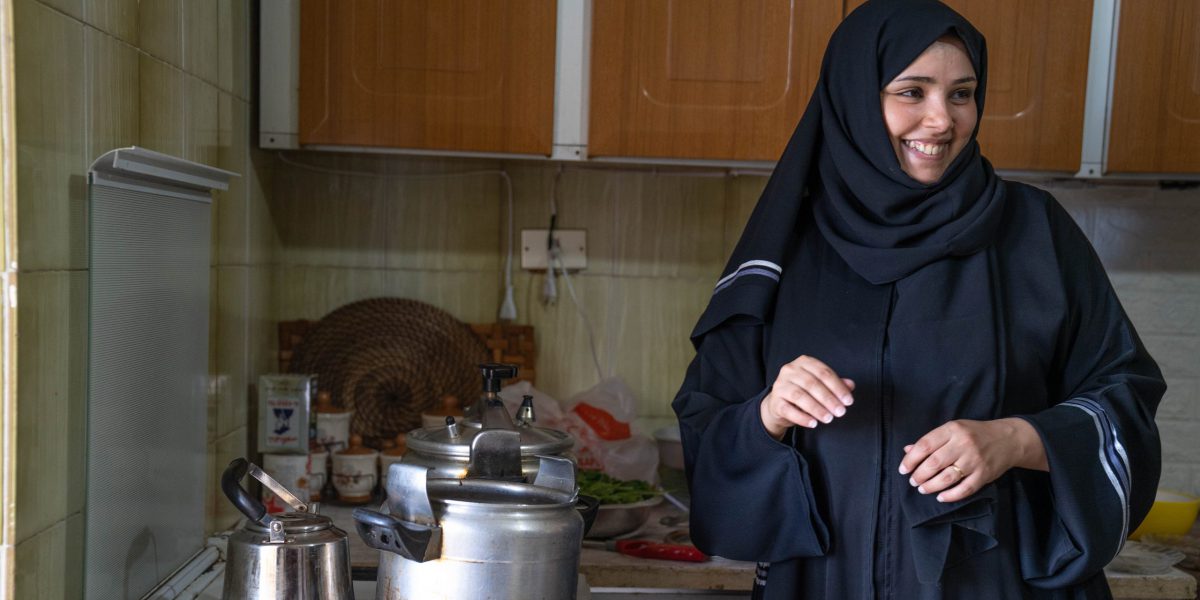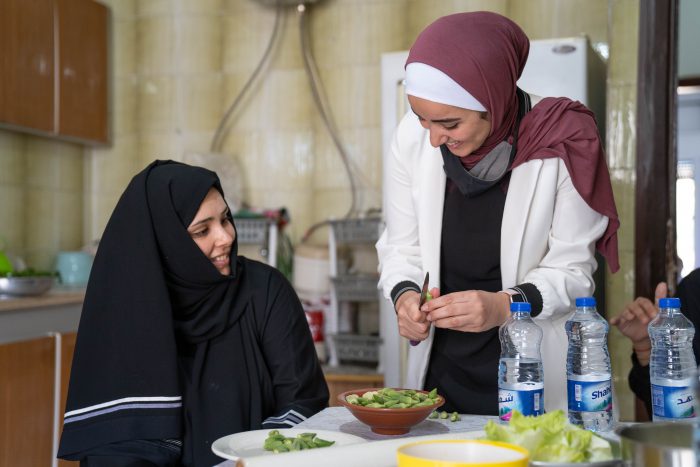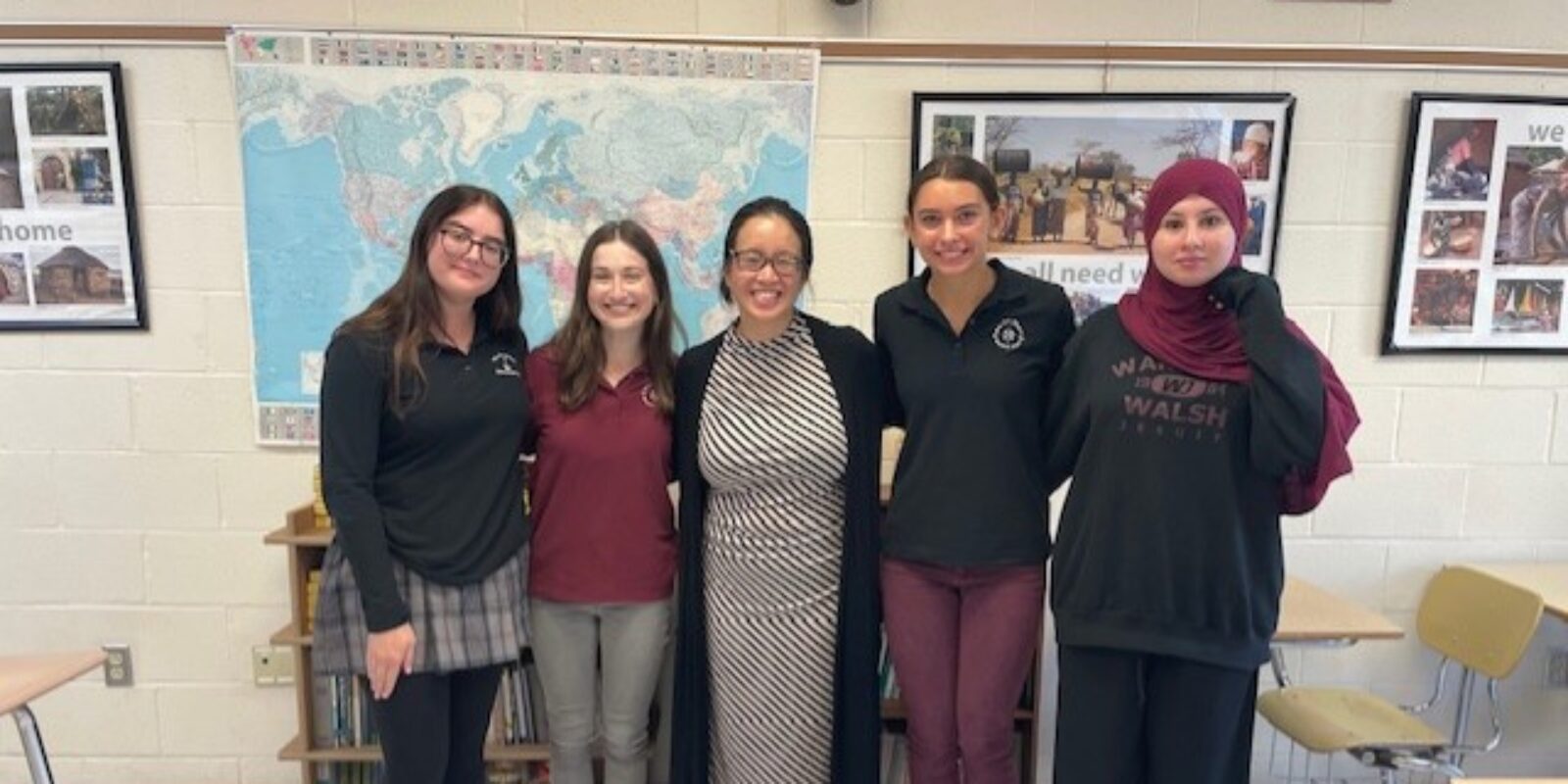JRS Jordan: A Journey to Yemen Through Flavors and Stories
10 February 2022

Gehad’s kitchen table is covered with colors and flavors, a rainbow of red meat, green lettuce, white garlic, and various spices. She starts washing, chopping, and mixing, then all the ingredients sit together in a pot, simmering above the fire. Through this pot, Gehad is bringing us back to her country, Yemen. The flavors and smells of Saltah, a traditional Yemeni dish, accompany her story of how she arrived in Jordan, with her husband Esam, their son Ra’fet, and their daughter, Raghad.
“The political parties in Yemen were forcibly recruiting children as young as the age of fourteen to train them to fight in the civil war,” Gehad tells us. “At that time, I started to notice a change in my son’s way of thinking. He started to become interested in the conflict-related affairs in our country. Out of fear that my son may join the armed groups and become a suicide bomber, we fled to Jordan in 2018.”
Their arrival to Jordan wasn’t easy.
“One of the most difficult things a refugee faces is dire financial circumstances. Refugees constantly struggle to provide for themselves and their families due to the lack of work opportunities. To be able to work requires a working permit, which a refugee would face many barriers to obtain, such as initially acquiring a residency permit. This additionally contributes to refugees struggling to afford high rent prices.” To support their family, her husband started working in a restaurant and making desserts. Gehad helped him prepare the food.
“We tried hard to make it through the hardships together as one family,” she says.
While we talk and cook together, her husband shows us a pottery pot called Al-Haradah, from Yemen, necessary for the cooking of Saltah. Her son arrives with a tray full of large Yemeni flatbreads that a neighbor prepared and little Raghad plays around her mother.

Gehad continues her story: “We started to learn new skills in the hopes of improving our living conditions. I signed up for a sewing course in one of the local centres,” she says.
“When the coronavirus outbreak began, I used my new skill to create and sell face masks. I sold simple designs to a Quran centre and then I helped to teach my friends and neighbors how to make the face masks as well. Afterwards, I progressed to sewing clothes and curtains.”
Gehad also realized how important it was for her son to learn English. She felt she couldn’t help him, so she decided to enroll in the English courses offered by JRS Jordan.
“After completing the English course, I was able to share what I learned and teach my son English,” she says.
“I also participated in the career coaching program. I learned how to create a CV and power point presentations. We got the opportunity to design a slideshow and it was fun to work as a group with my classmates. I also learned important information on jobs, job opportunities, and the labour market,” Gehad says.
During the course, she also gained an understanding about anxiety, depression, and other psychological concerns. Her son was able to join the community centre at JRS Jordan and improve his educational performance. Such progress and achievements encouraged her husband to study at JRS as well.
The Saltah is ready. We sit on the floor, gathered around the delicious dishes.
The last taste of Yemen that Gehad offers us is tea. It is sweet, spicy and warm, just how we feel after this day of sharing.
She tells us that “in the light of difficult circumstances, our participation in JRS marked a notable turning point in our lives. Refugees travel to Jordan to seek asylum and to find better living opportunities.
In our case, JRS provided us with the support and help we needed and ultimately changed our lives.”


